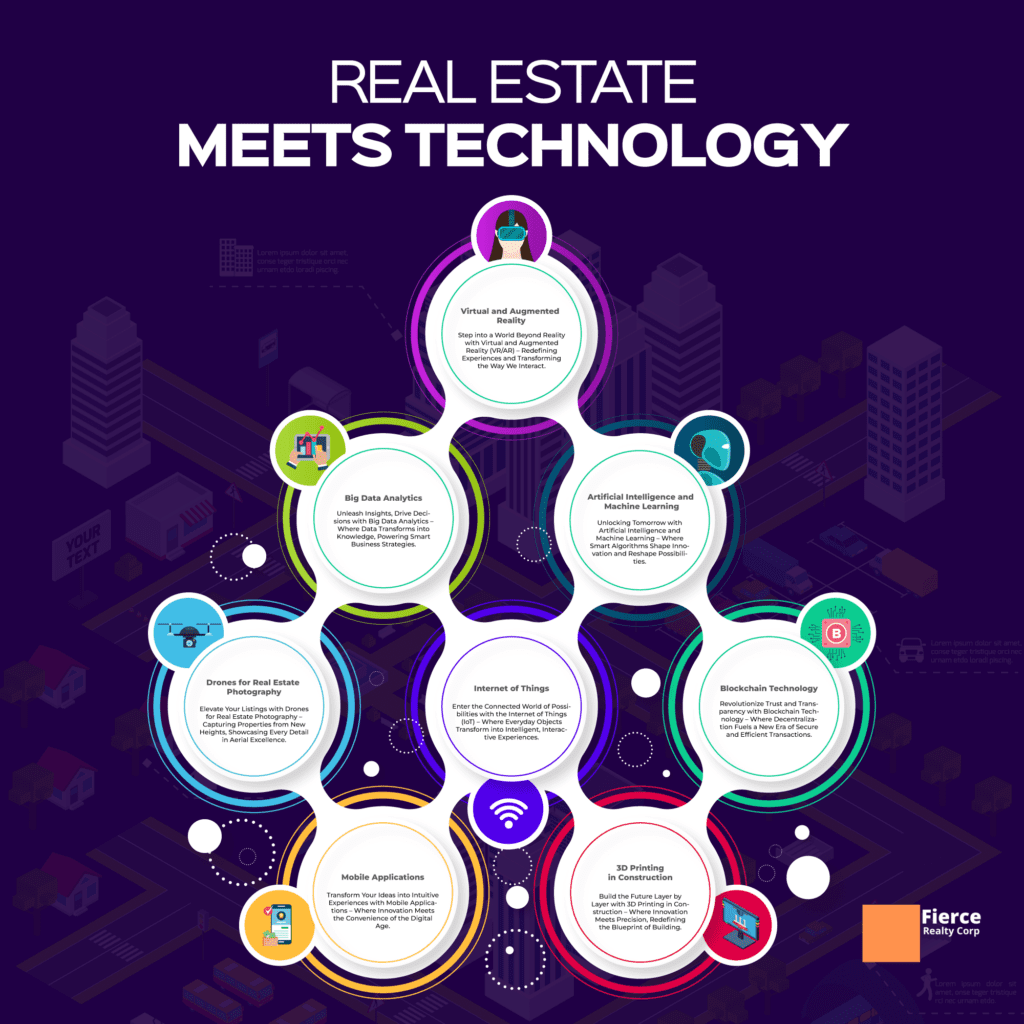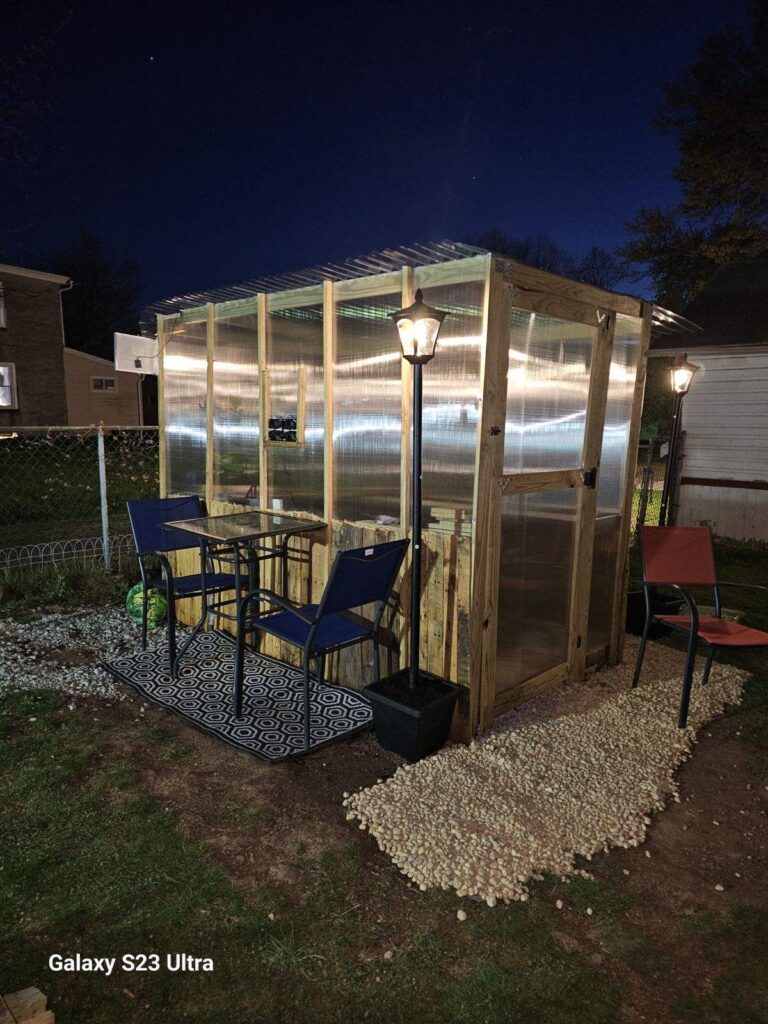By Deborah Ann Spence
Table of contents
- The Evolution of the Real Estate Industry
- Emerging Technologies in Next Level Real Estate
- The Impact of Artificial Intelligence on Real Estate
- Virtual Reality and Augmented Reality in Real Estate
- Blockchain and Smart Contracts in Next Level Real Estate Transactions
- The Rise of Sustainable and Eco-Friendly Real Estate
- Next Level Real Estate Marketing and Advertising
- Investing in the Future: Opportunities in the Real Estate Industry
The next level of real estate excellence is here. In the ever-changing world of real estate, pushing boundaries and exceeding expectations is the norm. Welcome to the future, where innovation and technology unite to elevate real estate to new heights. Get ready to be amazed as we explore the next frontier in the industry.
With technologies like augmented reality (AR), virtual office, virtual reality (VR), and artificial intelligence (AI), successful real estate professionals now have incredible tools to transform how we buy, sell, and experience properties. Imagine virtual tours that make listings come alive or AI algorithms that predict market trends and future property values. The possibilities are endless.
Join us as we dive into smart homes, shipping container villages, sustainable living, and urban planning that balance functionality with aesthetics. Learn how industry leaders use technology to enhance customer experiences, streamline processes, and build sustainable communities for a rapidly changing world.
The future of real estate is here, and it’s time to unlock its full potential. Set aside any anxieties and embrace change. Let’s embark on this exciting adventure into the next level of real estate excellence. Here’s a fantastic new real estate agent checklist.

The Evolution of the Real Estate Industry
The real estate industry has come a long way from its traditional roots. In the past, buying and selling properties involved time-consuming processes like visiting properties in person, handling heaps of paperwork, and relying on word-of-mouth. However, with technology and the internet, the industry has transformed significantly.
Data, analytics, and innovative technologies drive the real estate industry today. Professionals have access to a wealth of information, enabling them to make better decisions and offer superior customer experiences. From online listings to virtual tours, technology has revolutionized property transactions.
The demand for convenience and efficiency drives this evolution. Buyers and sellers expect quick, seamless transactions, and technology meets this challenge. Real estate marketplaces and mobile apps make searching for properties, connecting with agents, and negotiating deals easier. Digital platforms also allow remote property viewing, saving time and effort. Salaried Real Estate Agents vs. Commissioned Real Estate Agents.
As the industry evolves, professionals must stay ahead by embracing the latest technologies. This way, they can achieve a new level of excellence and provide outstanding customer experiences.
Emerging Technologies in Next Level Real Estate
The real estate industry embraces emerging technologies that reshape property transactions and experiences. From AR to AI, these technologies can potentially revolutionize the industry.
Augmented Reality (AR): AR transforms property experiences. Buyers can visualize properties in new ways using smartphones or AR devices, overlaying virtual objects onto real spaces. This helps them see how furniture fits or visualize renovations before purchasing. Sellers benefit from showcasing properties interactively.
Artificial Intelligence (AI): AI is a game-changer. AI-powered algorithms analyze vast amounts of data to identify patterns and trends humans might miss. This helps predict market trends, assess property values, and personalize property recommendations based on individual preferences. AI streamlines processes improves decision-making and enhances overall efficiency.
Blockchain Technology: Blockchain is gaining traction in real estate. It makes transactions more secure, transparent, and efficient. Smart contracts, which are self-executing with terms written into code, automate various transaction aspects, reducing fraud risk and speeding up processes. Blockchain simplifies property ownership and title management, making verification and transfer more straightforward.
These emerging technologies are just the beginning. The real estate industry is constantly evolving, with innovations introduced rapidly. By embracing these technologies, professionals can achieve new levels of excellence and offer exceptional customer experiences.

The Impact of Artificial Intelligence on Real Estate
AI is revolutionizing real estate in multiple ways. Its ability to analyze vast data, identify patterns, and make predictions transforms property transactions and management.
Property Valuation: Traditionally, property valuation involves manual processes and subjective assessments. AI-powered algorithms now make valuations more accurate and efficient by analyzing historical data, market trends, and property characteristics. This reduces human error risk and provides reliable information.
Customer Experience: AI personalizes property recommendations by analyzing customer preferences. This saves buyers time and helps them discover properties they might not have considered. AI-powered chatbots and virtual assistants improve customer satisfaction by providing instant responses.
Property Management: AI streamlines operations and improves efficiency. It can analyze data on tenant behavior, maintenance requests, and energy usage to optimize building operations. AI can detect anomalies in energy consumption, suggest energy-saving measures, and automate routine tasks like rent collection and maintenance scheduling.
While AI offers valuable insights and automation, human expertise remains essential. AI should enhance decision-making and efficiency, not replace human professionals.
Virtual Reality and Augmented Reality in Real Estate
VR and AR are transforming real estate experiences, providing immersive and interactive ways to explore properties.
Virtual Reality (VR): VR enables buyers to step into properties without being there physically. Using VR headsets, buyers can take virtual tours, exploring every room and detail. This offers a more immersive experience than traditional photos and videos, helping buyers make informed decisions.
Augmented Reality (AR): AR overlays virtual objects onto real spaces. Buyers can use smartphones or AR devices to visualize how furniture, decorations, or renovations would look. This interactive technology enhances the buying experience and helps sellers showcase properties effectively.
Real estate professionals benefit from VR and AR too. They can provide virtual tours to remote buyers, saving time for both parties. Developers and architects can use these technologies to showcase upcoming projects and visualize designs before construction, aiding informed decision-making and creating efficient spaces.
As VR and AR technologies evolve and become more accessible, their impact on the next level of real estate will grow. Buyers and sellers can expect more immersive, interactive, and personalized experiences, while professionals can leverage these technologies to streamline processes.
Blockchain and Smart Contracts in Next Level Real Estate Transactions
Blockchain technology is revolutionizing real estate transactions, making them more secure, transparent, and efficient. It uses a decentralized ledger to record and verify transactions, eliminating intermediaries and reducing costs.
Smart Contracts: Smart contracts are self-executing with terms written into code. They automate various transaction aspects, such as ownership transfer and fund release, eliminating manual intervention. Smart contracts reduce fraud risk, ensure transparency, and speed up processes.
Blockchain also transforms property ownership and title management. Recording property titles on the blockchain makes ownership history and transactions easily verifiable, reducing fraud risk and simplifying transfers. Blockchain offers a more efficient and transparent way to manage property records, reducing administrative burdens and costs.
While blockchain holds great promise, challenges remain. Collaboration among stakeholders, including governments and financial institutions, is essential. Legal and regulatory frameworks need development to ensure blockchain-based transaction legality and enforceability.
Despite challenges, blockchain’s potential benefits for real estate are significant. As the technology matures and gains acceptance, we can expect a more secure, transparent, and efficient real estate industry.

The Rise of Sustainable and Eco-Friendly Real Estate
As environmental awareness grows, sustainable and eco-friendly next level real estate is rising. This trend reflects a demand for properties that are not only attractive but also environmentally responsible and energy-efficient.
Energy Efficiency: Sustainable buildings optimize energy use, reducing greenhouse gas emissions. They incorporate technologies like solar panels, LED lighting, and smart thermostats to minimize energy consumption and reliance on fossil fuels.
Water Conservation: Sustainable buildings use water-saving technologies like low-flow fixtures and rainwater harvesting systems, addressing water scarcity and reducing consumption.
Environmentally Friendly Materials: Sustainable buildings prioritize renewable materials like bamboo and reclaimed wood, reducing environmental impact.
Sustainable real estate extends beyond residential properties to commercial buildings, retail spaces, and entire communities. Green building certifications, like LEED, assess and recognize sustainable buildings, enhancing market value and appeal.
Sustainable real estate reflects the industry’s commitment to a greener future. By prioritizing energy efficiency, water conservation, and renewable materials, real estate professionals contribute to environmental responsibility.

Next Level Real Estate Marketing and Advertising
Real estate has always relied on effective marketing and advertising. With technology and changing consumer behavior, real estate marketing is evolving.
Digital Platforms: Online listings, virtual tours, and social media advertising are essential tools for reaching potential buyers. Real estate professionals use digital marketing strategies to target specific demographics, generate leads, and create engaging content.
Social Media: Platforms like Facebook, Instagram, and LinkedIn play a crucial role in real estate marketing. They help professionals reach wider audiences, engage with potential buyers, and build brand awareness. Social media advertising enables targeted campaigns based on demographics and interests.
Content Marketing and Storytelling: Buyers want more than just listings; they seek emotional connections with properties. Professionals create compelling content, like blog articles and videos, highlighting property features, history, and lifestyle. This helps buyers make informed decisions and builds stronger connections.
Technology: AR and VR offer immersive ways to experience properties. Professionals use these technologies for virtual tours, saving time and effort. 3D modeling and rendering create lifelike visualizations, giving buyers realistic space sense.
Personalization: The future of marketing is about personalization. AI analyzes buyer data to provide customized property recommendations, while chatbots and virtual assistants offer instant responses.
Real estate professionals must stay updated on marketing trends and leverage technology to create engaging, personalized, and immersive experiences for buyers.
Investing in the Future: Opportunities in the Real Estate Industry
Real estate has always been a lucrative investment opportunity, and the future holds even more potential. With growing populations and urbanization, the demand for housing and commercial properties will rise, offering numerous investment opportunities.
Urban Development: As cities expand, there’s a need for well-planned, sustainable communities. Developers and investors can shape urban areas by creating innovative, sustainable projects. Mixed-use developments and smart cities offer vast possibilities.
Affordable Housing: Rising housing costs and income inequality create a demand for affordable housing. Investors can address this by investing in affordable housing projects, providing social impact and attractive returns.
Technology and Innovation: The rise of technology and innovation presents investment opportunities. Embracing emerging technologies can enhance efficiency, sustainability, and market value.
Investing in real estate’s future means capitalizing on urban development, affordable housing, and technological advancements. This approach offers not only financial rewards but also the chance to contribute to a sustainable and efficient real estate industry.


Hi my family member I want to say that this post is awesome nice written and come with approximately all significant infos I would like to peer extra posts like this
My brother suggested I might like this blog He was totally right This post actually made my day You can not imagine simply how much time I had spent for this info Thanks